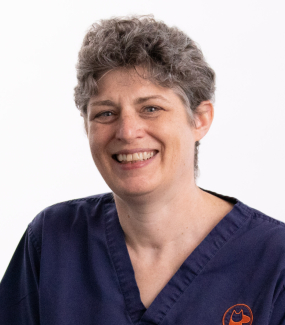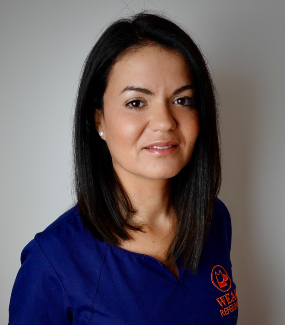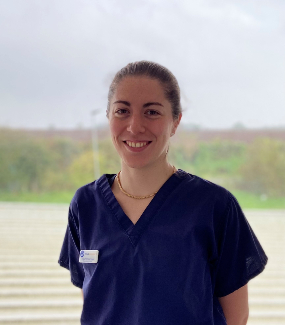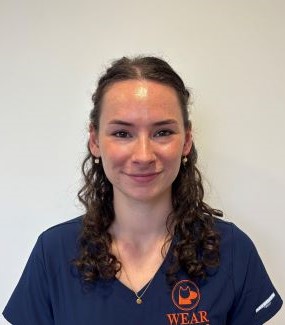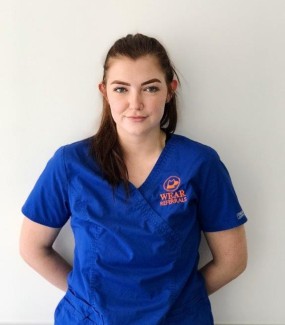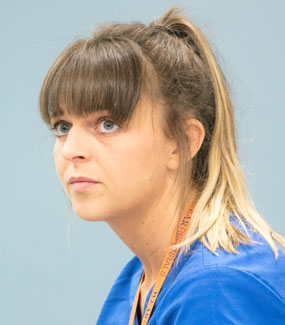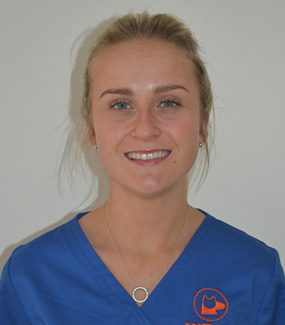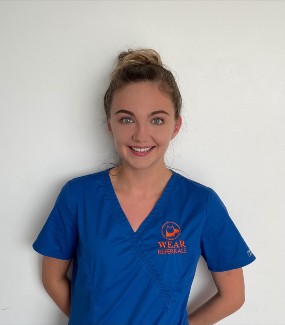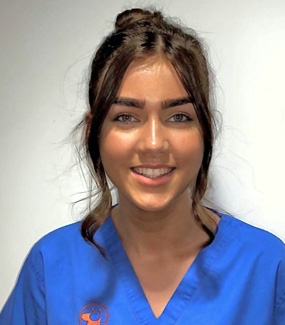Knowing how worrying neurological symptoms can be, we accept patients 365 days a year
Our neurology service is for patients with brain disease, spinal disease, exercise-induced weakness or collapse, and loss of vision where there is no direct eye problem and unusual or unexplained lameness.
Our team includes five RCVS recognised Specialists in Veterinary Neurology, a Neurology resident and more than 10 dedicated neurology nurses, many of whom have advanced qualifications.
- We offer advanced neurosurgery including spinal stabilisation and brain surgery.
Our Neuromed spinal stabilisation kit uses an advanced pedicle screw system to stabilise spines without needing to use bulky cements, allowing fine adjustment. Developed by leading surgeons and engineers, we're proud that the ground-breaking work carried out by the neurology team here at Wear Referrals is reflected in using technology such as this. - As part of a truly multidisciplinary team, we work particularly closely with our imaging, anaesthesia, ICU, and hydrotherapy teams.
Our highly trained radiographers have decades of experience and use our in-house 1.5 Tesla high-field MRI scanner to achieve high quality images. Our anaesthesia team ensure that patient safety during anaesthesia is priority, assisted by a state-of-the-art MRI-compatible multiparameter monitor which offers the highest level of monitoring for patients in MRI scanner.
Our ICU is staffed 24 hours a day, attending to the complex needs of our patients. We have experienced vets who work with a large team of nurses overnight to give continuity of care to our patients. Many of our neurology patients benefit from sessions with our hydrotherapy rehabilitation team to help to get them back on their feet.
The primary neurological diseases we see in our Neurology Service at Wear Referrals are intervertebral disc disease, Ischaemic myelopathy (FCE), epileptic seizures (epilepsy) and other movement disorders mimicking epileptic seizures, inflammatory CNS disease (meningitis, encephalitis) and CNS tumours, nervous system developmental abnormalities and other rare neurological disease.
Diagnosis
 Diagnostic procedures will be carried out after careful initial assessment during a consultation. We appreciate and encourage owners to provide video footage of abnormal behaviour, suspected epileptic seizures and gait abnormalities, as this helps us in understanding neurological disease further.
Diagnostic procedures will be carried out after careful initial assessment during a consultation. We appreciate and encourage owners to provide video footage of abnormal behaviour, suspected epileptic seizures and gait abnormalities, as this helps us in understanding neurological disease further.
Further diagnostic tests include blood tests, MRI scan of the head and/or spine and spinal fluid analysis (CSF tap). MRI is the gold standard neuroimaging modality, which is why we have a powerful high-field in-house MRI scanner. We have MRI on-site for any neurological cases that require a scan at short notice.
Surgery
The spinal surgical procedures we routinely perform include hemilaminectomy and mini-hemilaminectomy, intervertebral disc fenestrations, dorsal laminectomy, ventral slot surgery, corpectomy surgery, vertebral distraction and/or stabilisation, subarachnoid diverticulum surgery, spinal biopsies and surgery for Chiari-Like Malformation (foramen magnum decompression).
We also perform brain surgery in patients with brain tumours, patients with intracranial cysts and patients with hydrocephalus, including implantation of ventriculoperitoneal shunts.
All our neurology cases will undergo rehabilitation as part of the treatment for spinal disease.
Investigations and treatments we offer
- Spinal investigations and spinal surgery:
- MRI, CT, myelography
- Intervertebral disc disease, spinal fractures/ luxation, traumas, lumbosacral disease, cervical spondylomyelopathy, infarcts, tumours, inflammatory/infectious disease
- Neuromuscular investigations and surgery:
- Electrodiagnostic: electromyography and nerve conduction studies
- Muscle and nerve biopsy
- Brainstem Auditory Evoked potential (BAER) for testing hearing (including puppies)
- Electroretinography to assess retinal function in blind patients
- Electroencephalography (EEG)
- Intracranial investigation and surgery:
- MRI, CT
- Epileptic Seizures – diagnosis and management of idiopathic epilepsy
- Inflammatory brain diseases
- Chiari-like malformation and syringomyelia
- Infarcts
- Tumours
- Developmental disease
- Degenerative brain disease



